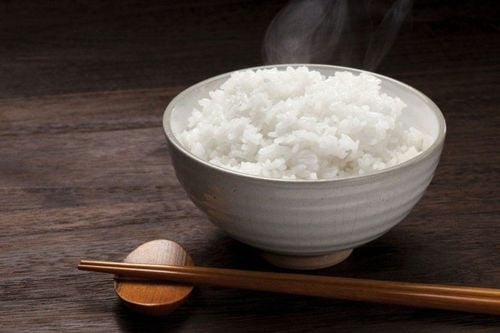This is an automatically translated article.
Sucrose (cane sugar) is a common type of sugar. It is a disaccharide, a molecule composed of two monosaccharides: glucose and fructose. Alum sugar is produced naturally in plants, from which table sugar is refined. However, do you know the nutritional index of rock sugar and whether eating rock sugar is fat? Let's read more articles below to find the answer.1. Nutritional index of rock sugar
Rock sugar, also known as gum or sugar candy, is a type of hard candy made by cooling sugar syrup into large crystals, sometimes surrounding a stick or piece of string. It can be made with many different types of sugar, including granulated sugar, cane sugar, and brown sugar.Rock sugar is especially popular in Asian cuisines and is used to sweeten teas, desserts and even savory dishes. It is less sweet than an equivalent amount of granulated white granulated sugar, making it a mild sweetener that is ideal for many beverages and dishes.
Some people believe that rock sugar is healthier than white granulated sugar. However, there is no scientific evidence to prove that rock sugar has different health benefits than granulated sugar. Furthermore, rock sugar is often made from refined white sugar, making its chemical composition identical.

Đường phèn đặc biệt phổ biến trong các món ăn châu Á.
Calories: 25. Protein: 0 grams. Fat: 0 grams. Carbohydrates: 6.5 grams. Fiber: 0 grams. Sugar: 6.5 grams. While sugar provides a quick source of energy for the body, it does not provide any significant amounts of vitamins or minerals. However, consuming rock sugar has some possible health benefits, but to a limited extent. Rock sugar provides quick energy because it is a simple carbohydrate, these sugars metabolize quickly in the body.
After entering the body, they are broken down into glucose very quickly. Therefore, rock sugar, like table sugar, acts as an emergency source of energy for your body's cells, tissues, and organs. Alum sugar is milder in sweetness than comparable pure table sugar because it is made from water and a sugar solution so it is thinner than refined sugar. You can replace the refined sugar with the same amount of rock sugar to result in a lower sugar absorption.
2. Is it fat to eat rock sugar?
Although sugar has an important place in your diet, its health benefits are limited. According to nutritionists, daily sugar intake needs to be carefully adjusted. According to the USDA's recommendations for a healthy diet, no more than 10% of total daily calories should come from sugar.The American Heart Association recommends a diet with less than 6 teaspoons of sugar per day for women and less than 9 teaspoons of sugar per day for men. Research shows that the average American people eat 17 teaspoons of sugar per day, equivalent to about 26 kg of sugar per year. There is a lot of evidence from scientific research showing that consuming too much sugar contributes to weight gain and ultimately leads to obesity. In addition, obesity is clearly linked to a number of health conditions such as type 2 diabetes, metabolic cardiovascular disease and high blood pressure,...

Ăn quá nhiều đường phèn có thể làm tăng cân gây béo phì
Besides can lead to overweight and obesity, consuming a lot of sugar can also cause poor oral health. Although not directly harmful to teeth, it is a food source for sugar-eating bacteria that attach to teeth to form plaque. Plaque creates conditions for bacteria to remain on teeth for a long time. Furthermore, other toxic products secreted by bacteria can penetrate the gum tissue in the teeth and cause gingivitis. If left untreated, gingivitis can progress to a more serious condition called periodontitis, which can lead to bone and tissue loss around the teeth.
Eating a lot of sugar can also lead to cardiovascular diseases. Many studies have shown an association between a diet high in sugar and the risk of dying from heart disease. These studies have shown that a diet high in sugar increases the risk of dying from heart disease. One long-term study found that people who consumed 17-21% of their daily calories as sugar had a 38% higher risk of dying from cardiovascular disease.
From the above reasons, we need to carefully consider the daily consumption when using rock sugar as well as other sugars. People who consume more than the recommended amount of sugar in a day can lead to unwanted health problems in the short or long term. These consequences can increase the risk of morbidity and mortality. Please follow the website: Vinmec.com regularly to update other useful information.
Please dial HOTLINE for more information or register for an appointment HERE. Download MyVinmec app to make appointments faster and to manage your bookings easily.
Reference sources: carbmanager.com, eatthismuch.com












